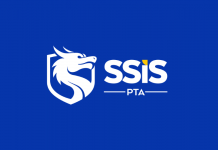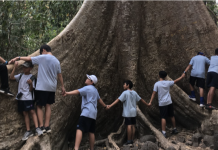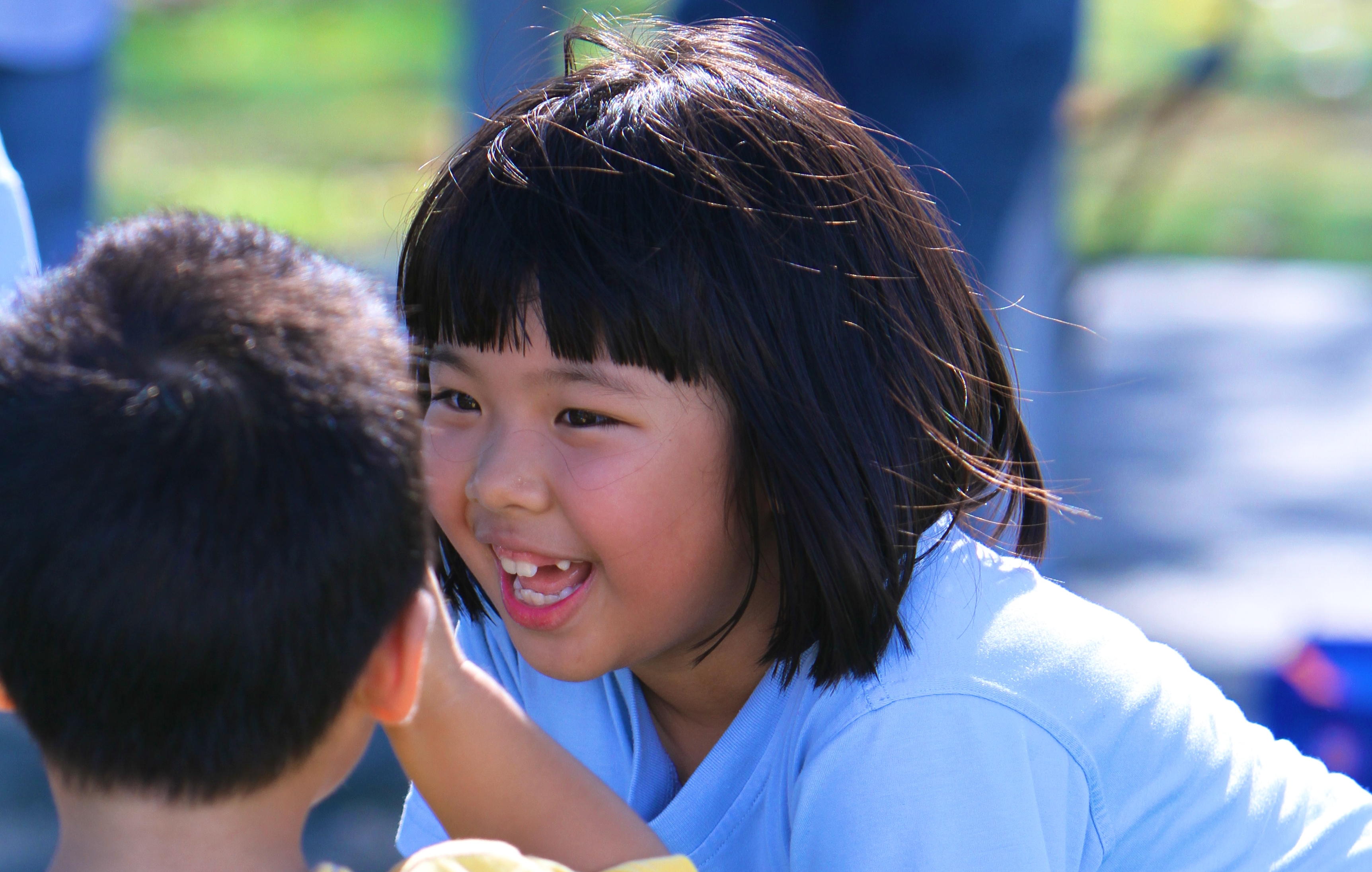AT HOME: Expressing | Thinking| Discovering
You can best help your child with literacy in English through regularly discussing her experiences in your home language with her. Listen earnestly and give your child time to express herself. Encourage her to use vocabulary that is specific to the topic that is being discussed. Practicing this skill in your home language will help her later in English, when she seeks accurate words to clearly represent her ideas.
Spend more time with her outside; experiment with natural objects and discover new places, so you can discuss what she observes by using vocabulary from the five senses. When you talk with her about her experiences in detail, deep connections are made from her life to her reading and her writing. This is also a natural way to generate story ideas that come alive for her to use in Writers Workshop. Teachers love when a learner comes into class and bursts out, “I want to write about what happened yesterday!”
Time is the best investment in our children! Dedicating regular time to talk with your child about experiences becomes valuable learning. This will benefit his language development in English as well as in your home language.
Sharing Experiences (See end of this post for sample questions.)
- When your child has new experiences, please encourage descriptions of the new experience with specific words,
- questions, wonderings, and exploration as well as trying out new ideas.
- Do meaningful activities with your child that are of interest to him; at times, you can plan an activity in English such as making a recipe or a craft.
- Reread everything that your child writes and brings home. Together. Give positive feedback for one thing that you like about the writing.
- Being pleased with your child’s efforts is priority. No matter how many mistakes there may be, nor how short the writing is, celebrate writing in all forms.
- Patience is golden. Never force a child to speak English.
- Language learning is a process that should not be rushed.
- Praise your child when he is trying to learn a new skill.
- At times, you can use an English translation for key words that arise in your conversations and reading. This lends to the transfer of ideas, not just memorizing vocabulary words.
- Give your child plenty of time to play. Help your child make connections with new friends by having play dates with children from his class. Language is a social skill!
- If possible, use specific words in your native language and in English.
- These are suggestions. Do what works best for you!
Show Curiosity
- Max, tell me more about…
- How did you feel when …?
- What did you hear (see, touch, smell, feel or taste)?
- What did you think when …?
- Show me how you climbed the rocks. What did you do?
Model Thinking
- What do you wonder about this animal?
- What makes it interesting?
- How does it get its food?
- What are some questions that you have that will help you to understand this animal?
- I am thinking about when… Do you remember how….
Create and Play Together
- Let’s make your favorite food. Can you tell me the steps to make it? What is the first step?
- Can you give me directions to walk from the gate outside to your bedroom inside? Use left, right, first, second, etc.
- Be Word Wizards
- Let’s write down 2 new words (native language or English) to look up from this chapter.
- What do you think is another word for _______?
A personal note from EAL teacher Heidi Sontag
Hello, I am a new teacher at SSIS this year. I am teaching EAL, English as an Additional Language, to kindergarten English language learners, and am also supporting third grade classrooms for EAL. I am thrilled to be at SSIS with my husband, Tim Dorn, who teaches the Butterfly Class in kindergarten. Tim is a long-time Early Childhood educator and loves working with his new kindergarten team and is enjoying getting to know his young learners.
Tim and I have taught overseas for 11 years- after living in Alaska and Boston and our home state, Minnesota. Although our own children, Gabe, 21, and Lucy Rae, 18, are in the states for university, we have a sweet, six-year-old poodle-mix, Taz, to keep us company. During the winter holiday, our children will visit us here in Vietnam. We feel fortunate to live in Phu My Hung and to work in this wonderful learning community at SSIS. We love the people here in Saigon, and of course, the amazing food!


![[AS] Welcome New Faculty, 2023-2024 (May 2023) Head of School Letter header](https://enews.ssis.edu.vn/wp-content/uploads/2022/08/HOS-Letter-SY22-23-218x150.png)

![[AS] Award-Winning Author Minh Lê Visits SSIS!](https://enews.ssis.edu.vn/wp-content/uploads/2023/04/Minh-Le-218x150.jpg)
![[AS] Annual Community Survey](https://enews.ssis.edu.vn/wp-content/uploads/2022/03/2022-Community-Survey-218x150.jpg)
![[ES] Classroom Placement, 2023-2024 – Opportunity for Parent Input elementary school general graphic](https://enews.ssis.edu.vn/wp-content/uploads/2022/07/ES-eNews-Cover-218x150.png)

![[G6-8] Important End-of-Year Events and Dates](https://enews.ssis.edu.vn/wp-content/uploads/2022/07/MS-eNews-Cover-218x150.png)


![[G9-11] Invitation to University Application Policies and Procedures, Wednesday, 8:00 am](https://enews.ssis.edu.vn/wp-content/uploads/2020/10/University-Application-Process-218x150.jpg)
![[G12] US Student Visa: US Consulate to Provide Information, Monday, May 8, 6:00 – 7:30 pm HS eNews Cover](https://enews.ssis.edu.vn/wp-content/uploads/2022/07/HS-eNews-Cover-218x150.png)



